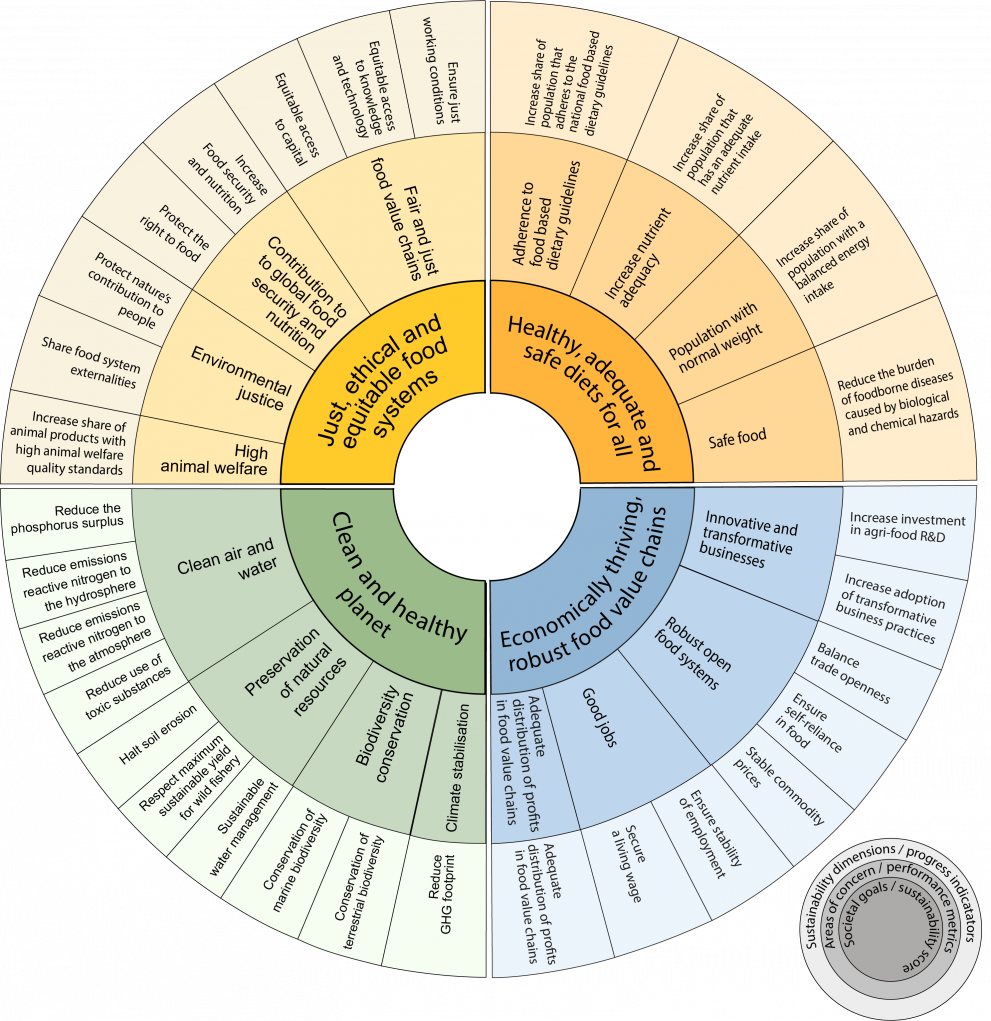
Any actions to transform the food systems need to be designed with four interconnected societal goals in mind: dietary health, environment, economy, and social justice. This is what a multi-disciplinary team, including JRC scientist A. Leip, write in their recent paper that presents the ‘Food System Sustainability Compass’.
The Food System Sustainability Compass is a metrics framework developed to support decision-makers in assessing food system sustainability. It can generate comprehensive food system insights that enable relevant actions and negotiation involving policymakers from different policy domains.
The complex world of food
Food is on everyone’s mind, every single day. Deciding on what food to buy can be very difficult when sustainability is thrown into the mix: Can I afford it? Is it healthy and safe? Does it harm the environment or animals? Who has produced it and under what conditions?
These questions show how making decisions about food is often very complicated and that the needed information is often hard to come by.
Sustainability Compass helps guide decision-makers
To support decision-makers in navigating these challenges and questions, the Sustainability Compass offers a framework that integrates transdisciplinary insights and makes reflexive assessments and multi-actor negotiation on trade-offs possible.
This way, the Sustainability Compass helps to set priorities for food policies, assess who wins and loses if these policies are implemented, and negotiate what change is most desired and fair.
Sustainability scores defined for 4 societal goals, and areas of concern

Central to the Sustainability Compass are universal societal goals that describe global, desired food system outcomes:
- Healthy, adequate, and safe diets for all;
- A clean and healthy planet;
- Economically thriving food systems supportive of the common good; and
- Just, ethical, and equitable food systems.
Each goal is characterised by four ‘areas of concern’, that capture recent insights on sustainability priorities from diverse disciplines.
The published paper presents an example by proposing at least one indicator and target for all 16 areas of concern for European food systems.
Measuring progress towards food sustainability
The compass indicates what decision-makers should reflect on and negotiate with stakeholders. Specific indicators, reflecting different contexts and priorities, are used to compare present or projected situations against science-based targets. This way, it can show what progress is or isn’t made in food system sustainability.
Central to the compass is the ability to facilitate multi-actor negotiations on food system sustainability by allowing diverse stakeholders to make sense of the complex adaptive nature of food systems.
Supporting transparent and inclusive policymaking
The new Sustainability Compass helps point the way towards more transparent, inclusive, and evidence-based policymaking that covers a wide range of possible stakeholders' interests.
Embedding the Sustainability Compass into the policy process can
- Foster transparency between food system decisions based on scientific evidence and those based on norms and values; and
- Mirror the process of the UN Sustainable Development Goals and separate the process of development of sustainability indicators and their use in policy assessment.
In this way, the Sustainability Compass provides actionable insights to support sustainable food systems that are economically thriving and supportive of the common good, in the pursuit of universal goals in a just, ethical, and equitable manner.
Further information
- A Sustainability Compass for policy navigation to sustainable food systems
- Farm to Fork Strategy
- European Green Deal
- UN Food System Summit
- Knowledge Centre on Sustainable Food Systems
- Knowledge Review: Sustainable Food Systems
- EDGAR-FOOD: the first global food emission inventory
- Guiding Principles for Sustainable Healthy Diets
Related Content
A Sustainability Compass for policy navigation to sustainable food systems
Knowledge Centre on Sustainable Food Systems
Knowledge Review: Sustainable Food Systems
Details
- Publication date
- 11 June 2021
